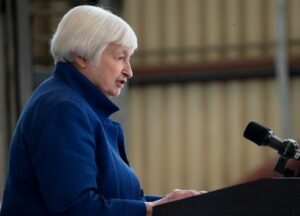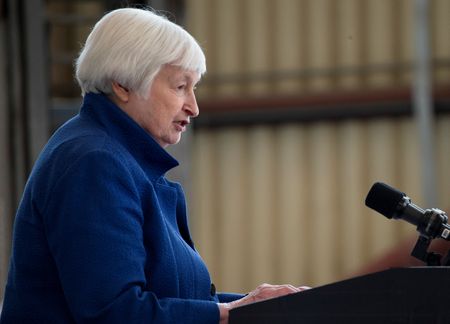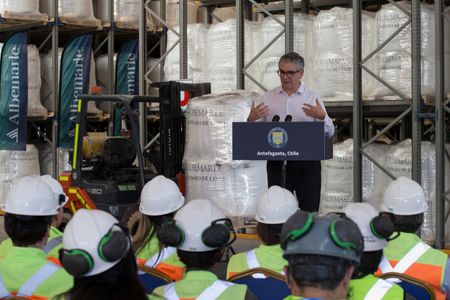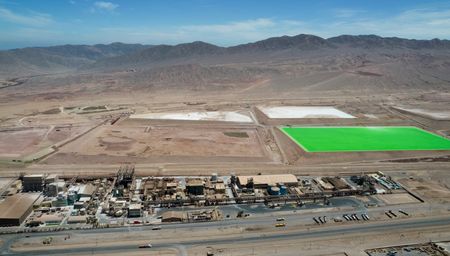By Andrea Shalal
LA NEGRA, Chile (Reuters) -U.S. Treasury Secretary Janet Yellen on Saturday predicted expanding demand for lithium – a core component needed in batteries for electric vehicles – would boost U.S. imports from Chile substantially in coming years.
Yellen toured U.S. lithium producer Albemarle in northern Chile on Saturday as she wrapped up a visit to Chile that included meetings with President Gabriel Boric, Economy Minister Mario Marcel and business executives in Santiago.
She told reporters after visiting the Albemarle site in La Negra, about 30 minutes southeast of Antofagasta, that rising demand for clean energy could generate some $3 trillion in global investment opportunities through 2050.
Expanding U.S.-Chilean ties would benefit both countries, improve energy security and help achieve key climate goals, she said, noting that a core goal of the U.S. Inflation Reduction Act is to reduce overdependence on strategic goods, including critical minerals, from China.
Yellen said the U.S. was keen to expand domestic production and find other sources of critical minerals like lithium needed to power electric vehicles.
“We want to certainly acquire minerals from our free trade partners, especially a country like Chile that is producing with great environmental sensitivity and has its own strong climate agenda,” Yellen said.
She said increased purchases of lithium would likely increase U.S. imports from Chile and increase its share of Chilean exports. China is now Chile’s biggest export market.
“I can’t tell you numbers, but I imagine that we will be expanding substantially our purchases from Chile,” she said.
Yellen’s visit to Chile is part of a broader push dubbed “friendshoring” to diversify U.S. supply chains by bolstering ties with key allies and partners such as Chile.
Washington has a strong interest in Chile as the world’s largest producer of copper and the second largest producer of lithium, both components critical to the green transition.
EXPAND TRADE FLOWS
She told reporters on Friday that the U.S. wanted to expand its own trade flows with Chile, not dissuade it from trading with China, its biggest trading partner, adding, “It’s not a competition.”
Yellen said Chile’s lead production role in copper was critical, noting that demand is projected to double by 2035, since the metal is required for everything from electric vehicles to offshore wind turbines and transmission networks.
With 30% of global market share and the largest lithium reserves, Chile is also the world’s second biggest producer of lithium, which is expected to see a tripling of demand by 2030 given its key role in energy storage, such as for EV batteries.
Chile’s 20-year-old free trade agreement with the United States means critical minerals from Chile help vehicles qualify for clean vehicle tax credits under the Inflation Reduction Act, which Yellen said would boost industries in both countries.
She said Albemarle’s investment in Chile showed the benefit of expanded ties, noting the North Carolina-based company had two sites in Chile that employ 1,000 people: a production site in Salar de Atacama and a conversion plant in La Negra.
There would be shifts in the medium to long term as the U.S. ramps up lithium production in the United States, Yellen said, citing a planned Albemarle lithium mine due to open in North Carolina by 2030 and a separate mine and processing facility in Nevada that broke ground one year ago.
Yellen said Chile was working on recommendations as part of a new national lithium strategy, and said its goal was to ensure “they don’t end up in a situation where any one country totally dominates the production.”
She said she could not comment on the details of the emerging regulatory framework, but noted that companies like Albemarle saw “a very bright future” ahead in Chile.
(Reporting by Andrea Shalal; editing by Diane Craft and Jonathan Oatis)








